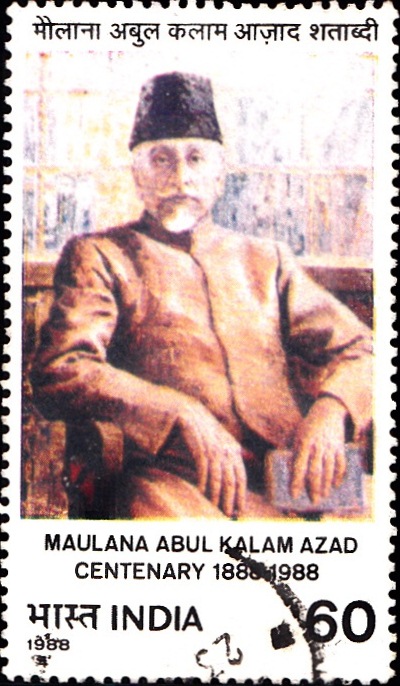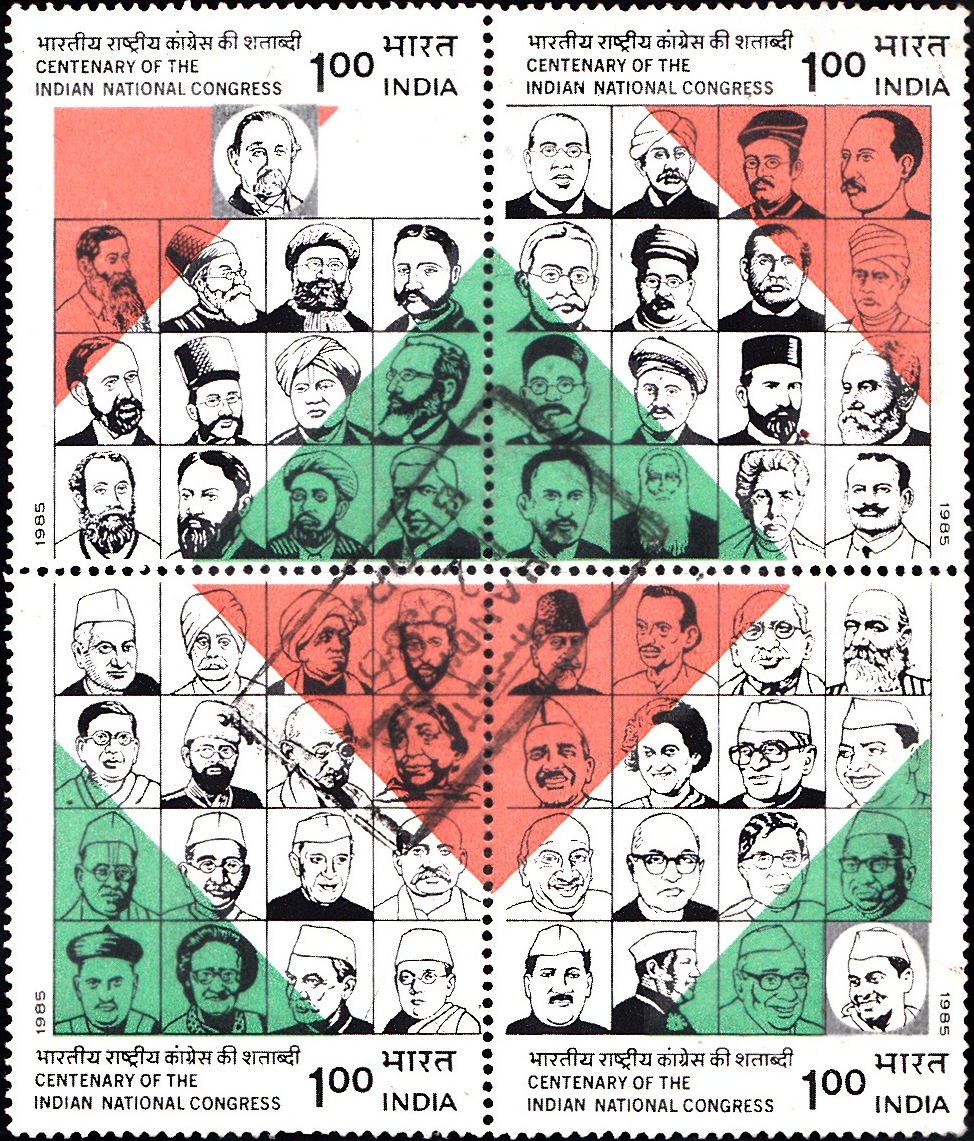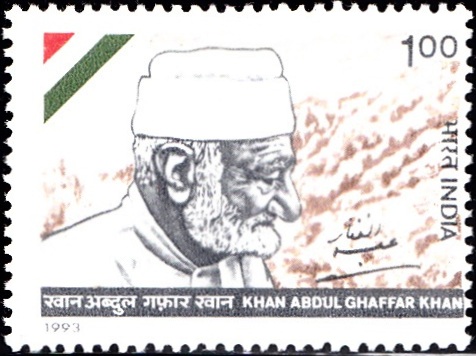
Maulana Abul Kalam Azad
A commemorative postage stamp on the Birth Centenary of Abul Kalam Azad, 1st Minister of Education of Independent India (1947-58) :
 Issued by India
Issued by India
Issued on Nov 11, 1988
Description of Designs : The stamp design is obtained from the Indian Council for Cultural Relations and is based on a painting by K.K. Hebbar. The first-day cover is designed by Sankha Samantha and the cancellation by Alka Sharma.
Type : Stamp, Postal Used
Colour : Multicolour
Denomination : 60 Paise
Overall size : 5.8 x 3.32 cms.
Printing size : 5.33 x 2.89 cms.
Perforation : 13 x 13
Paper : Imported unwatermarked adhesive gravure coated stamp paper
Number Printed : 10,00,000
Number per issue sheet : 18
Printing Process : Photogravure
Printed : India Security Press
Name :Maulana Sayyid Abul Kalam Ghulam Muhiyuddin Ahmed bin Khairuddin Al–Hussaini Azad
Born on Nov 11, 1888 at Makkah, Hejaz Vilayet, Ottoman Empire [now Saudi Arabia]
Died on Feb 22, 1958 at Delhi, India
About :
- Coming from a distinguished family of Muslim divines, noted for its learning, Mohiuddin Ahmad, popularly known as Maulana Abul Kalam Azad, was born in Mecca in 1888 – where his ancestors had migrated from India during the revolt of 1857. Azad spent his childhood in Arabia, studying privately. In 1898 he accompanied his parents to India and settled in Calcutta. Here he completed a traditional course in higher Islamic education.
- The Swadeshi movement in Bengal deeply influenced the patriotic Azad and he associated himself with the revolutionaries of the province. In 1912 he started the Urdu weekly Al Hilal to propagate nationalist ideas. He was forced to stop publishing the journal, for seditious writings, but the Maulana started another weekly the Al–Balagh in 1915 and faced internment at Ranchi in Bihar. On release in 1920, he came in close contact with Gandhiji and became prominent among those who supported his Non-Cooperation programme. From this time onwards till Independence he remained in the forefront of each subsequent movement and often suffered imprisonment.
- Chief of the Khilafat Committee, the Maulana was also elected President of the special session of the Congress at Delhi in 1923. He also presided over the Jamiat-ul-Ulema and Nationalist Muslim Conference in 1924 and 1929.
- When the Congress accepted office in 1937, the Maulana, as a member of its Parliamentary Board, guided the working of the Congress ministries. From 1940 to 1946 he was again elected President of the Congress. Under his presidentship the historic Quit India resolution was passed at Bombay. Subsequently he was arrested along with other leaders and detained in the Ahmadnagar Fort. On release in 1945, he participated in the Simla Conference and later led the negotiations with the British Cabinet Mission.
- A member of the Constituent Assembly, Maulana Azad joined the Interim Government as Minister of Education and Arts. In free India he became the Minister for Education and later for National Resources and Scientific Research. He was also elected Deputy Leader of the Congress following the first general election. His tenure as Education Minister is remembered for significant measures like the appointment of the University and the Secondary Education Commissions, the re-organisation of the All India Council for Technical Education, the rapid development of the Indian Institute of Science, the establishment of the University Grants Commission, the Kharagpur Institute of Technology and the setting up of a chain of laboratories for scientific research throughout the country. A profound scholar, an eminent educationist and a far-sighted statesman, Maulana Azad represented the ideals of secularism and unity in our national life.
- He passed away on 23rd February 1958.
- Text, Courtesy: Shri Chintamani Vyas and the Indian Council for Cultural Relations.








I have a stamp available of maulana Abdul Kalam Azad centenary 1piece.
Would like to sell it, what is the current value of it.
[…] was immediately followed by the arrest of Gandhiji, Panditji, Sardar Patel, Rajendra Babu, Maulana Azad and all other prominent leaders and the adoption of other stern measures by the British Government. […]